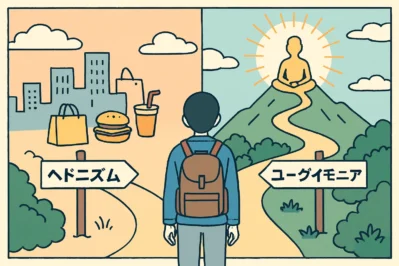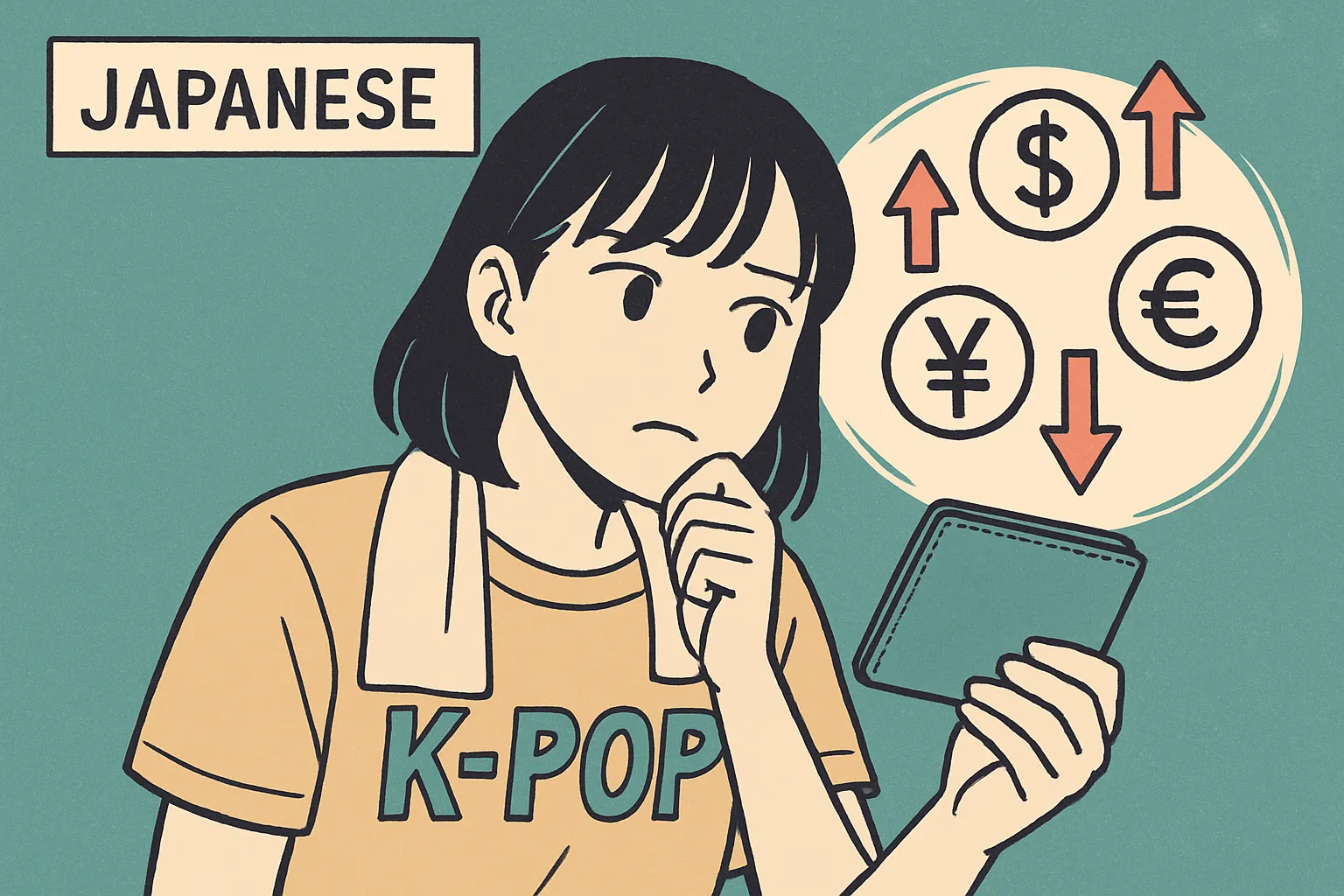Korean Philosophy of Happiness: Chasing 쾌락 or Cultivating 에우다이모니아?
Hello! Welcome to [Maeil Hangeul], where we upgrade your Korean skills to a whole new level!
Today, we’re moving beyond simple greetings and grammar to ask a much deeper question: What does it mean to be happy? In this post, we’ll explore two profound philosophical approaches to happiness that are becoming increasingly relevant in modern Korean society. This is perfect for when you want to have more meaningful conversations about life, career, and personal values with your Korean friends or colleagues.
Lately in Korea, the conversation around well-being has been evolving. While trends like “YOLO” (욜로) and “소확행” (small but certain happiness) focused on enjoying the present moment, many are now asking, “What’s next?” People are beginning to search for a more sustainable, meaningful form of happiness. This is where the ancient Greek debate between Hedonism and Eudaimonia comes in, and it’s a fascinating lens through which to view Korean culture today.
Core Expressions: The Vocabulary of Well-being
Let’s dive into the key terms that will help you navigate this profound conversation.
1. 쾌락주의 (快樂主義)
- Pronunciation [Romanization]: Kwae-rak-ju-ui
- English Meaning: Hedonism
- Detailed Explanation: This term is composed of Hanja: 快 (쾌) meaning ‘pleasant,’ 樂 (락) meaning ‘joy,’ and 主義 (주의) meaning ‘-ism.’ 쾌락주의 is the philosophy that the ultimate goal of life is to maximize pleasure and minimize pain. In a modern context, it can be associated with consumerism, seeking instant gratification, and prioritizing sensory pleasures. While not inherently negative, in conversation, it can sometimes imply a more superficial or short-sighted approach to life compared to a life of deeper meaning.
2. 에우다이모니아 (Eudaimonia) / 행복주의 (幸福主義)
- Pronunciation [Romanization]: E-u-da-i-mo-ni-a / Haeng-bok-ju-ui
- English Meaning: Eudaimonia; a philosophy of human flourishing or living well.
- Detailed Explanation: 에우다이모니아 is the direct transliteration of the Greek term. A more native Korean term is 행복주의 (幸福主義), from the words for ‘happiness’ and ‘-ism’. Eudaimonia, famously articulated by Aristotle, defines happiness not as a fleeting feeling of pleasure, but as the state of ‘flourishing.’ It is achieved by living a life of virtue, purpose, and realizing one’s full potential. It’s about the satisfaction that comes from overcoming challenges and living a meaningful life.
3. 자아실현 (自我實現)
- Pronunciation [Romanization]: Ja-a-sil-hyeon
- English Meaning: Self-realization / Self-actualization
- Detailed Explanation: This is a crucial concept for understanding Eudaimonia in a Korean context. The Hanja are 自我 (자아) for ‘self’ and 實現 (실현) for ‘realization’ or ‘actualization.’ 자아실현 refers to the process of developing and utilizing your abilities and potential to the fullest. It’s the engine of a eudaimonic life—the active pursuit of personal growth and purpose, whether through one’s career, hobbies, or contributions to society.
4. 내면의 소리에 귀를 기울이다
- Pronunciation [Romanization]: Nae-myeon-ui so-ri-e gwi-reul gi-ul-i-da
- English Meaning: To listen to one’s inner voice.
- Detailed Explanation: This beautiful idiom literally means “to tilt one’s ear to the voice of the inner self.” It perfectly captures the introspective journey required to pursue a eudaimonic life. It means paying attention to your own values, passions, and conscience, rather than being swayed by external pressures or the desire for immediate pleasure (쾌락).
Example Dialogue
Here’s how these concepts might appear in a real-life conversation between two colleagues, Jihye and Minjun.
A (지혜): 민준 씨, 요즘 회사 그만두고 소셜 벤처 준비한다는 소문 들었어요. 대기업이라 안정적이고 좋았잖아요!
Minjun, I heard a rumor that you quit the company and are preparing a social venture. But it was a major corporation, stable and good!
B (민준): 네, 맞아요. 월급은 높았지만 제 삶이 텅 빈 느낌이었어요. 돌이켜보니 너무 쾌락주의적인 삶을 살았더라고요. 비싼 음식을 먹고 좋은 물건을 사도 잠시뿐이었죠.
Yes, that’s right. The salary was high, but my life felt empty. Looking back, I think I was living a very hedonistic life. Eating expensive food and buying nice things only brought temporary joy.
A (지혜): 그래서 방향을 바꾸신 거군요.
So you decided to change your direction.
B (민준): 네. 이제는 진정한 에우다이모니아를 찾고 싶어요. 돈은 좀 덜 벌더라도, 사회에 기여하면서 자아실현을 하고 싶다는 제 내면의 소리에 귀를 기울이기로 했어요.
Yes. Now, I want to find true eudaimonia. Even if I earn less money, I decided to listen to my inner voice, which told me I want to achieve self-realization while contributing to society.
Culture Tip & Trend Analysis: The New Korean Dream
The dialogue above isn’t just a hypothetical. It reflects a real shift happening in Korea, especially among the younger generations.
- From “So-hwak-haeng” to “Ja-a-sil-hyeon”: The trend of ‘소확행’ (small but certain happiness) was a powerful coping mechanism—a form of everyday 쾌락주의 to find joy in a hyper-competitive society. However, many are now seeking more. The rise of “Quiet Quitting” (조용한 사직) and “N잡러” (people working multiple jobs) isn’t just about burnout or money; it’s often a quest for 자아실현 that a single, traditional career path may not offer.
- Redefining Success: When you discuss life goals in Korean, try using these nuanced terms. Instead of simply saying “저는 성공하고 싶어요” (I want to succeed), you could say “저는 제 일을 통해 자아실현을 하는 것이 성공이라고 생각해요” (I believe success is achieving self-realization through my work). This demonstrates a deeper, more sophisticated understanding of both the language and contemporary Korean values.
Let’s Recap & Practice!
Today we explored the profound difference between 쾌락주의 (Hedonism: a life focused on maximizing pleasure) and 에우다이모니아 (Eudaimonia: a life of flourishing, meaning, and 자아실현). To achieve the latter, it’s important 내면의 소리에 귀를 기울이다 (to listen to one’s inner voice).
Now, it’s your turn to practice!
- Fill in the blanks:
순간의 즐거움만을 좇는 삶의 방식을 ( _______________ )라고 부를 수 있고, 자신의 잠재력을 발휘하며 의미 있는 삶을 추구하는 것을 ( _______________ )적 행복이라고 할 수 있습니다. -
Your Turn to Reflect:
What does 자아실현 mean to you personally? In a short Korean sentence, describe one thing your 내면의 소리 is telling you about your life right now.
Leave your answers and thoughts in the comments below! We’d love to hear your perspective on this fascinating topic. Keep up the great work






